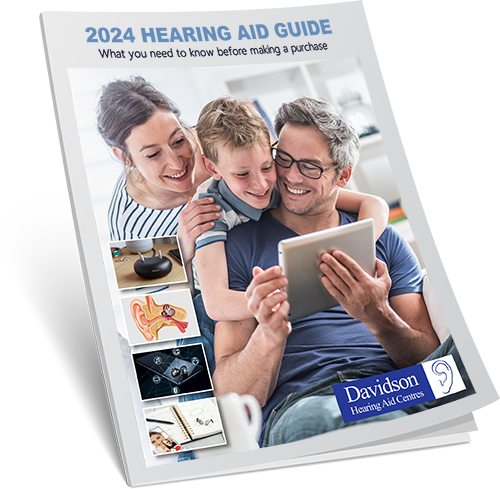Hearing Aids
Frequently Asked Questions
We have put together the answers to many of the Frequently Asked Questions (FAQs) that we get in the clinics about hearing aids.
Find A Location Near You
With 10 convenient locations in Eastern Ontario including 5 in the Ottawa area plus Arnprior, Brockville, Cornwall, Renfrew and Pembroke
Check Your Hearing
Wondering if you have hearing loss? This online screener allows you to check your hearing in just 3 minutes. All you need is a set of headphones.
Advanced Hearing Aid Technology
If you’re like most people, you envision those ugly, bulky and frustrating devices your parents or grandparents used to wear whenever someone talks about hearing aids. Unfortunately, most people avoid the incredible assistance provided by hearing aid technology because of the outdated stigma attached to them.
However, thanks to nano and micro digital technology, today’s hearing aids are as different from what they were a few decades past just as your smartphone is different from those first cell phones. Today’s hearing aids are not only smaller, lighter, more stylish and more discreet, but they also feature greater processing power, produce natural sound clarity, control background noise, eliminate feedback and enhance speech as well as allow you to link your hearing aids to your smartphone and other digital devices.
How Today’s Hearing Aids Are Better
Over the past 5 years, patient satisfaction with hearing aids has been steadily increasing due to the huge improvements in technology. Here are some of the reasons why we are seeing better outcomes and more satisifed hearing aid users than ever before:
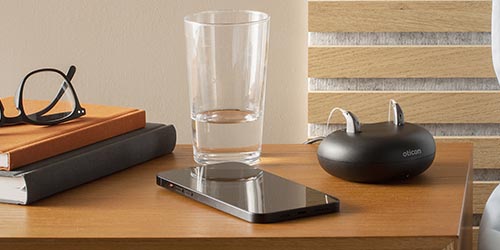
Rechargeable Batteries
Better hearing has just been made easier. The latest breakthrough in rechargeable battery technology means that users will never have to worry about changing their hearing aid batteries again. The Oticon Real, Phonak Audéo L-R, ReSound Omnia, Signia Charge&Go, Starkey Evolv R and Widex Moment hearing aids were all designed to use built-in rechargeable batteries. These new devices last roughly 24 hours between charges, with only a 3-4 hour charging time. That means you will never have the batteries die in the middle of an important event.

Improvements to Background Noise Reduction
Hearing in noisy situations is one of the biggest challenges for those with hearing loss. The newest generation of hearing aids can analyze and categorize the incoming sounds into speech sounds and noise sounds. Although this process is usually referred to as noise reduction, a better name for this technology is actually “speech enhancement”, as there is no way to completely eliminate background noise. After categorizing all sounds as either speech or noise, the hearing aids will then make adjustments to the amplification levels, to maximize the speech sounds while minimizing noise. This allows the speech to be lifted out of the background noise, improving the hearing aid user’s ability to understand conversations.

Directional Microphones – Hear What You Want
But what happens when the background noise is also speech? Most models of hearing aids now offer directional microphones which allow the hearing aid to determine which direction a sound is coming from. Once the background noise of the environment exceeds a certain level, the hearing aid switches into a directional mode, which provides emphasis to the speech occurring in the front. You will still hear people talking from beside and behind you, but the voices directly in front of you will be given more amplification, making them easier to understand.

Bluetooth & Wireless Technology
Wireless technology has been getting more and more attention recently. Wireless systems allow your hearing aids to communicate with other devices such as TV’s, stereos, computers, mobile phones, land line phones, etc. This direct transmission of sound to the hearing aids improves the signal quality by reducing distance, echo, reverberation, and background sounds. This leads to potentially significant improvements in comprehension. In the case of telephone use, it also allows the transmission to be heard in both ears, which typically further improves word understanding.
How Our Independance Benefits You
Since our family started fitting hearing aids in 1943, our mission has been to provide the best hearing aid technologies along with industry leading service. A unique feature of our company is that we work with all hearing aid manufacturers, to offer our clients the very best options. Our ability to deal with all brands of hearing aids means that we will help you choose the BEST product for YOU! Unlike an ever growing number of our competitors, which are owned by manufacturers almost exclusively offering their brands, Davidson Hearing Aid Centres remains a family owned business. This allows us to choose from all of the different makes and models on the market. Although it is true that all of the major hearing aid manufacturers now make very good hearing aids, there are significant differences in sound quality, programs, design and connectivity. Therefore, the brand which is best for one person may not be the best for the next. Our independence and relationships with all of the major hearing aid manufacturers provides us the flexibility to prescribe the best possible products to meet our patient’s individual hearing needs. Our years of experience will ensure that you get the hearing aids that best suit all of your needs.
Learn More About Our Hearing Aid Offerings
We work closely with each of the six largest global hearing aid manufacturers. Click on each of the links below to learn more about each of their specific hearing aid features and offerings.
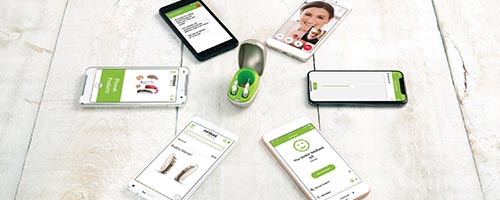

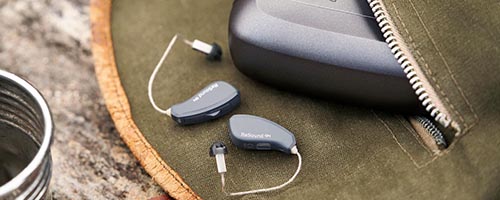

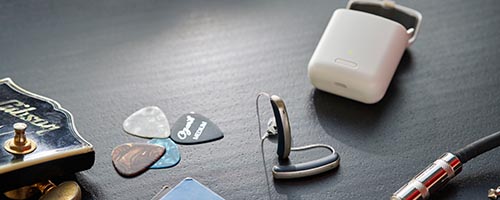





Hearing Aid Frequently Asked Questions
Q. At what level of hearing loss is a hearing aid necessary?
A. Although hearing aids used to be primarily for those with moderate to severe impairment, we are seeing more and more cases of individuals noticing significant improvements in hearing even with mild hearing losses. This is particularily true for those who struggle hearing in groups and background noise. If there is any measurable hearing loss and the individual is noticing that they are experiencing difficulty in their day-to-day situations, it is definitely worth seeing how much improvement hearing aids can make. For those who are unsure about the possible benefits, we offer a free 2 week trial of Demo hearing aids to allow you to see for yourself the difference they could make.
Q. Can a hearing aid cure hearing loss?
A. Hearing aids provide assistance by helping clarify and amplify sound, but they cannot restore the natural function of your ears. Their use can slow hearing deterioration, limit cognitive decline, alleviate tinnitus symptoms and help correct ongoing issues with balance and vertigo.
Q. How long do hearing aids usually last?
A. The average lifespan of hearing aids seems to range from four to seven years. This can vary significantly depending on how they are taken care of (daily cleaning, regular scheduled maintenance, tune-ups and repair). However, most audiologists will suggest upgrading your device every four to five years in order to reap the benefits of new technologies in a rapidly developing industry.
Q. Do hearing aids use special batteries?
A. Yes. For decades they have used zinc-air batteries specifically designed for hearing aids. These are availalbe in three different sizes, 10, 312, 13 and 675, depending on the size of the hearing aid and the power consumption required. We stock and sell hearing aid batteries at all of our clinics. If you are ever stuck without them, or forget to bring yours along on a trip, they are also availalbe at most pharmacies and supermarkets, and some convenience stores.
With that said, the past 5 years has seen a major shift in the industry towards the devolopment of hearing aids with built in Li-ion rechargeable batteries. There are pros and cons of both battery systems.
Q. How long does it take to adjust to hearing aids?
A. How quickly we adjust to hearing aids will vary from individual to individual. It can be quite a shock for the brain when the amplified sounds from your hearing aids arrive in your brain’s central auditory system. Typically, the more hearing loss present and the longer it has been since the brain had access to these soft sounds that you miss hearing naturally, the more challenging the transition is and the more time it will take to acclimate and relearn how to process these “new sounds” and sounds it hasn’t heard in a while.
Your hearing healthcare provider will guide you along this journey through programming adjustments, counselling, technical support, troubleshooting and providing coping strategies that help speed up the adjustment process. We understand that this is a process and offer a 90 day trial period to ensure that you are completely satisfied with your new hearing aids. This is ample time for most people to adjust and evaluate the benefits of their hearing aids.
Q. Are hearing aids covered by insurance?
A. Most private health insurance policies do offer coverage for hearing aids. However, the amount that they offer seems to vary significantly. We recommend reaching out to your insurance provider to determine the amount that you might be eligible for prior to your hearing assessment appointment. Most insurance providers will also cover the cost of a hearing test.
Q. Are there programs to help pay for hearing aids?
A. There are a variety of programs available to help with funding hearing aids, including:
- Assistive Devices Program (ADP)
- Workplace Safety and Insurance Board (WSIB)
- Veterans Affairs Canada (VAC)
- Ontario Disability and Support Program (ODSP)
- Hearing Aid Rental
- Davidson’s Kids Program
Have Questions About Hearing Loss?
Our Hearing Aid Guide was created to help you understand the implications of hearing loss and what is involved in choosing the right hearing aids. It will provide you with background information and prompt you to ask the right questions before making a final decision. Hopefully this guide helps you on your journey towards improved hearing.
Request a Callback
Whether you’re concerned about your hearing or a loved one’s hearing, it can be an overwhelming and confusing position to find yourself in. With so much conflicting and contradictory information available online, it can be confusing to know who to trust.
The good news is that we’re here to help.
If you have a question or would like some no-obligation professional advice, then simply complete this form and a member of our team will call you to answer your questions and offer you friendly support.
Remember, there’s no such thing as a silly question!

